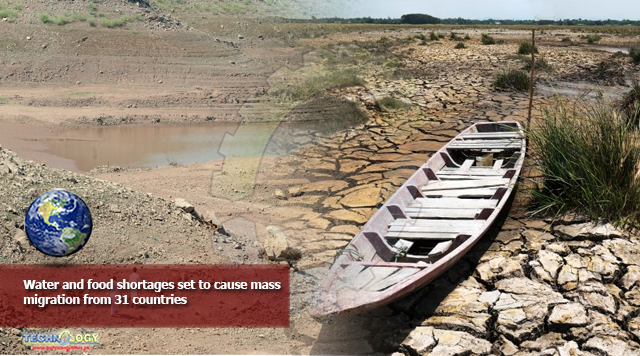Water and food shortages are set to cause mass migration from 31 countries which are unable to cope with looming environmental crises, the Institute of Economics and Peace (IEP) warned.

A significant rise in climate refugees will seek asylum in Europe as more than 1.2 billion people are displaced by ecological threats over the next three decades, a report has predicted.
Water and food shortages are set to cause mass migration from 31 countries which are unable to cope with looming environmental crises, the Institute of Economics and Peace (IEP) warned.
The resulting displacement will “be on a vastly larger scale” than the 2015-16 migrant crisis if nothing is done to tackle the ecological breakdown, the think tank’s founder Steve Killelea told The Independent.
Parts of sub-Saharan Africa, south Asia, the Middle East and north Africa are facing a perfect storm of environmental problems and instability, according to the IEP’s Ecological Risk Register, which analysed factors such as population growth, water stress, food shortages, droughts, floods, cyclones, rising temperatures and sea levels alongside nations’ ability to withstand climate crises.
Nineteen of countries with the highest number of ecological threats are among the world’s 40 least peaceful countries, including Afghanistan, Syria, Iraq, Chad, India and Pakistan, said the think tank, which also publishes an annual Global Peace Index.
Some of these countries “are already trapped in a vicious cycle where competition for scarce resources creates conflict and conflict in turn leads to further resource depletion,” the report said.
A lack of fresh water and shortages of food will be the key drivers of further instability, it added.
“Over the next 30 years lack of access to food and water will only increase without urgent global cooperation. In the absence of action civil unrest, riots and conflict will most likely increase,” Mr Killelea said.
The report highlights Pakistan, which is on the brink of a water crisis and also faces flooding and food supply shortages, as the country with the largest population at risk of displacement, followed by Ethiopia and Iran. Haiti faces the highest threat in Central America.
Even relatively small ecological threats and natural disasters “could result in mass population displacement, affecting regional and global security,” the report added.
Mr Killelea said: “This is something which Europe needs to take heed of. We saw what happened when there was two million migrants flowing into Europe in the 2015 and 2016 immigration peaks and you could see the political instability which came with that and the rise of new political parties.
“Without something being done to address these ecological issues it will be on vastly larger scale than what we’ve seen in the last few years.”
Extreme weather displaced 24 million people within their countries last year, with conflict and other disasters forcing a further 9.5 million to flee their homes, according to the Internal Displacement Monitoring Centre.
More than 1 per cent of the humanity is now displaced, according to the United Nations refugee agency, which in June urged countries worldwide to do more to help those affected. About four in five people displaced will seek refuge in a neighbouring country, the agency estimates.
Originally published at Independent